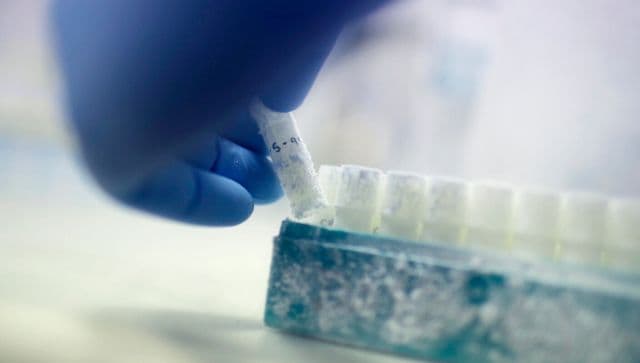India has taken a bold leap in its fight against diabetes by setting up the country’s first-ever diabetes biobank in Chennai.
This groundbreaking initiative, a collaboration between the Indian Council of Medical Research (ICMR) and the Madras Diabetes Research Foundation (MDRF), promises to boost scientific research and treatment for diabetes, according to PTI.
With a treasure trove of biological samples from around India, the biobank is set to unlock answers to one of India’s most pressing health challenges and hopes to help those affected by this chronic condition.
Here’s what we know about it
India, often called the “
diabetes capital of the world,” is grappling with a severe public health crisis. The country has over 10 crore diabetes cases and 13.6 crore prediabetes cases, as per the ICMR-INDIAB study. This places India at the top globally in terms of the diabetic population.
Despite the alarming numbers, awareness about diabetes remains strikingly low. The study found that only 43.2 per cent of Indians have heard of diabetes, underscoring the urgent need for large-scale awareness and education programmes.
Lifestyle factors also play a significant role in the rising cases. The study revealed that less than 10 per cent of Indians engage in recreational physical activity, contributing to an increasingly sedentary lifestyle and worsening the problem.
The diabetes rate in India has also increased significantly over the years. Among women, prevalence has jumped from 11.9 per cent in 1990 to 23.7 per cent in 2022. For men, it has risen from 11.3 per cent to 21.4 per cent during the same period.
Type 1 and Type 2 diabetes remain the most common forms of the disease. The average age of diagnosis is 12.9 ± 6.5 years for Type 1 and 21.7 ± 3.7 years for Type 2.
The situation is further exacerbated by
untreated diabetes. A 2022 Lancet study reported that 62 per cent of diabetics in India—equivalent to 13.3 crore individuals—are not receiving any form of treatment or medication.
“From my experience as an endocrinologist, early detection and continuous care can drastically alter diabetes outcomes. Collaborative efforts between government bodies, healthcare professionals, and community organisations are vital to mitigate the burden of untreated diabetes in India, improve health literacy, and deliver timely, equitable care across all geographies,” said Dr Sachin Kumar Jain, professor and HOD, department of endocrinology at Amrita Hospital, Faridabad, in an interview with Times of India.
After India, China ranks second with 14.8 crore diabetics, followed by the US (4.2 crore), Pakistan (3.6 crore), Indonesia (2.5 crore), and Brazil (2.2 crore).
With input from agencies
Link to article –
India sets up the first diabetes biobank in Chennai. Here’s why this is significant
